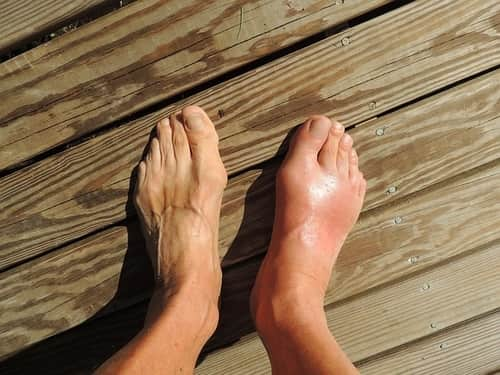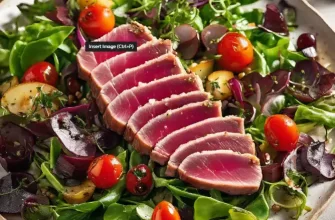Gout is a complex form of arthritis that causes severe pain and discomfort, often targeting the big toe. Known for its sudden onset, it generally strikes in the wee hours of the morning, inflicting an excruciating sensation that leaves the affected area tender to any contact.
Gout occurs when uric acid builds up in the body, leading to the formation of sharp, needle-like crystals in a joint. This agglomeration of uric acid can be significantly influenced by one’s diet; thus, it’s vital to discuss foods best to avoid when a person is managing gout.
1. Excess Protein-Rich Foods
Certain high-protein foods, particularly from animal sources, contain purines which can raise uric acid levels. These include organ meats (such as liver, kidneys, and sweetbreads), red meat, game meat, and certain fish like anchovies, sardines, mussels, scallops and herring.
2. Sugary Foods and Beverages
Research has linked a significantly high intake of sugar-rich foods and beverages to an increased risk of gout. In particular, fructose-rich beverages, like regular soda and fruit punches, may elevate uric acid levels and precipitate gout attacks.
3. Seafood
While seafood is generally considered nutritious, certain types of seafood are high in purines. Examples include shellfish, lobsters, shrimp, crabs, as well as fish like mackerel and tuna. So, these ought to be minimized in a gout-friendly diet.
4. Alcohol
Consumption of alcohol in any form or quantity is harmful to humans. Whether you have gout or you are healthy as an ox, drinking alcohol should be abandoned forever.
5. Refined Carbohydrates
Refined carbs like white bread, cakes, and candy should be avoided. Not only do they offer little nutritional value, but they can also increase the risk of gout.
Final Verdict
These food restrictions can sometimes be overwhelming, especially for individuals who previously enjoyed a varied diet. However, there are many delectable foods that are excellent for people managing gout. These include whole grains, lean protein from poultry and legumes, fruits, vegetables, and low or non-fat dairy. By making necessary dietary amendments, one can manage gout pain and lead a healthy lifestyle.
It’s always wise to consult with a healthcare provider or a dietitian who can provide personalized dietary advice to manage gout effectively. Furthermore, everybody’s body responds differently to dietary changes, so it’s essential to find an eating plan that not only helps manage gout symptoms but also improves overall health.
| Food Group | Foods to Avoid | Better Alternatives |
|---|---|---|
| Protein | Organ meats, Red meat, Certain Fish | Lean protein from poultry and legumes |
| Sugary Foods | Regular soda, Fruit punches | Water, Unsweetened teas |
| Seafood | Shellfish, Lobsters, Certain Fish | Low-purine seafood like salmon |
| Refined Carbohydrates | White bread, Cake, Candies | Whole grains, fruits, and vegetables |









